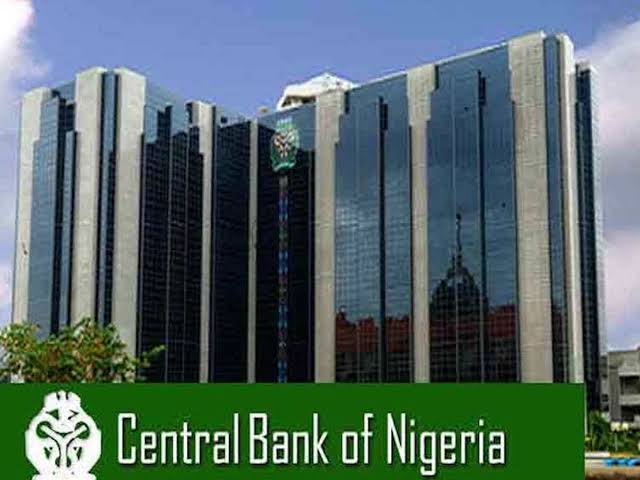CBN financing deficit is highly inflationary, says DG, LCCI

• Could complicate efforts to bring inflation under control – FITCH
• Takes time to fix disparity between revenue and expenditure, says Prof. Ajibola
The Federal Government’s repeated recourse to Ways and Means (WM) facility with the Central Bank of Nigeria (CBN) has raised concerns about weaknesses in public finance management, complacency on the part of many revenue generating agencies who use most of the generated funds as overhead costs and excessive dependence on the apex bank for fiscal stability.
While it is not unusual for countries to resort to money creation to finance expenditure, as deployed by some in the bid to tackle the coronavirus pandemic, the Federal Government’s repeated recourse to this option is raising concerns in the economy. Some think this could further weaken institutional safeguards that preserve the credibility of policymaking and the ability of the central bank to control inflation.
According to the Guardian, with limited fiscal policy options, going by the government’s inability to generate enough tax from citizens, who are largely unemployed and underemployed, alongside poor production among local manufacturers seeking access to limited foreign exchange for production, the CBN has continued to apply monetary policy to address economic concerns.
Last year alone, the CBN stated that it made a total of N3.5 trillion disbursements to cushion the effect of COVID-19 pandemic on the country’s economy.
Lofty as it were, there are concerns about government creating money to finance its expenditure, even though the action aids nominal stock of money and consequently increases demand for goods and services. This is because output has been insufficient and not in tandem with increased demand, thus fuelling inflation.
Nigeria’s inflation rate increased by 15.75% (year-on-year) as of December 2020, the highest rate recorded in three years, with hopes of decline any time soon, appearing dim.
The apex had loaned the Federal Government N2.86 trillion in 2020, following government’s inability to meet its revenue targets due to the impact of the fall in oil prices and COVID-19 pandemic.
Though the Minister of Finance, Zainab Ahmed during a public presentation of the 2021 FGN Approved Budget – Breakdown & Highlights made the disclosures for 2020, a similar pattern is observed in deficit financing between 2014 and 2019.
Within the reference period of 2014-2019, about N10 trillion was extended to the Federal Government by the apex bank, according to data compiled from the budget implementation report of the Federal Government and published by the Budget Office of Nigeria.
Though the Minister of Finance revealed there are plans between her ministry and the CBN to convert loans from the apex bank into tradeable securities, most likely bonds, this also raises concerns about the country’s debt profile, even as dividend yields appear to be a better investment for investors now that T-bills yields are at record lows.
The CBN’s guidelines limit the amount available to the government under its WMF to 5% of the previous year’s fiscal revenues. However, the FGN’s new borrowing from the CBN has repeatedly exceeded that limit in recent years, and reached around 80% of the FGN’s 2019 revenues in 2020.
THE Director-General of the Lagos Chamber of Commerce and Industry (LCCI), Dr. Muda Yusuf urged the Federal Government to be cautious in allowing the CBN to finance its deficit, especially when such credit was never included in the budget.
“The CBN has been engaged in a lot of interventions in the economy in various sectors. Getting the CBN to be involved in deficits that are not highlighted in the budget, even though government highlights other sources of deficit financing is worrisome. There is a level to which the CBN can intervene and with the level of financing in 2020, it is overboard.
“CBN financing of deficit is highly inflationary. We hardly look into these factors when discussing inflation. This kind of deficit financing is characterised in some literature as inflation tax. As inflation increases, real income reduces and purchasing power reduces. This is a society where incomes are hardly adjusted in line with inflation. It should not become a norm as it is major source of macro-economic challenges,” he added.
On the effect of the loans being converted to special instruments, Yusuf explained that while formalising FG’s borrowing from CBN will increase the country’s debt profile, converted instruments like the low yield government securities are helpful to the productive sector as funds can be invested in the real sector as being witnessed presently.
“Presently, companies are able to raise funds at a cheaper rate than they used to before now, through corporate bonds and commercial papers. It is a good source of resource mobilisation for the real sector,” he added.
CREDIT rating agency, Fitch Ratings noted, however, that while a number of emerging markets resorted to central bank deficit financing in 2020 against a background of urgent spending needs and temporary market dislocations associated with the coronavirus pandemic, the use of central bank financing in Nigeria predates the pandemic shock.
Fitch views the Nigerian government’s fiscal revenue and expenditure projections for 2021 as broadly realistic, which should preclude further significant borrowing by the sovereign from the CBN facility this year. The government may nonetheless use the facility more extensively if the deficit proves wider than forecast or if external financing falls short of planned amounts.
“Monetary financing of the fiscal deficit raises challenges to monetary policy implementation, as tight management of domestic liquidity is a key tool under the CBN’s policy of prioritising the stability of the naira. It could also complicate official efforts to bring inflation back under control.
High inflation in Nigeria is a credit weakness. Nigeria’s consumer prices rose by 15.7% year-on-year in December 2020. However, at present, we view inflation as being driven primarily by cost-push factors – including restrictions on access to foreign exchange for imports, the impact of border closures on trade, hikes in minimum wages and VAT, and the removal of the fuel subsidy – rather than overly loose monetary policy,” Fitch added.
Economists who spoke with The Guardian say actions of the CBN are consistent with what central banks all over the world are doing, pursuing developmental responsibilities.
They explained that fiscal deficit arises because public spending rises while revenue remains unchanged, adding that the growth in public revenue in developing countries is restricted by many factors such as low per capita income, limiting the base on which direct taxes can be imposed, as well as income tax exemptions in the form of tax holidays, accelerated depreciation rate and tax credits usually provided to the manufacturing sector, and deficiencies in tax administration.
On the other hand, they noted that public spending continues to grow due mainly to mismanagement; increased public participation in production and control of economic variables; and sheer inability to control spending.
Professor of Economics and former President/Chairman of Council, Chartered Institute of Bankers of Nigeria (CIBN), Segun Ajibola explained that CBN now plays the role of lender of last resort to not just the banks, but more to the Federal Government, adding that to finance its intervention, the CBN “has to either mop up liquidity from the banking system (hence the recurring increase in reserve ratios) or monetise foreign exchange reserves.”
“The government is no doubt working hard to improve its internally generated revenue, but it may take time to fix the disparity between its revenue and expenditure. Hence, the reliance on CBN to support the deficit financing through either direct lending to the Federal Government or the use of monetary instruments to raise such funds from the public, which may continue for a while. CBN is finding itself under a situation where it has to balance the challenges of monetary policy with those of fiscal management,” he added.
On the effects of such interventions on rising inflation, Professor Ajibola explained that from the perspective of aggregate money stock, “it is obvious that when more money in circulation in the economy is chasing fewer goods, demand pull inflation results. But of more relevance to Nigeria’s inflationary pressures over the years is cost push inflation, as cost of procuring inputs, accessories and infrastructures such as power continues to soar.”
Another Professor of Economics, who spoke on condition of anonymity due to membership of government’s economic team, said the CBN’s action is consistent with what other countries are doing in rescuing their economies.
According to him, the CBN is using all the tools available to it to support the fiscal side, which is weakened, adding that due to lack of fiscal buffer and limited fiscal capacity, the apex bank had to deploy other mechanisms to protect the economy and restore growth.
“I think we are not in a very unusual position forced partly on us by the fall in oil price and the pandemic. The economy is contracting at a time government income is falling and foreign capital flows is also declining. The country’s ability to raise taxes is also limited, because income is collapsing, unemployment and poverty are rising.
“Economists are in agreement that given the unique situations faced by countries all over the world, countries must focus on rescuing the economy by supporting household’s income and supporting firms,” he added.





